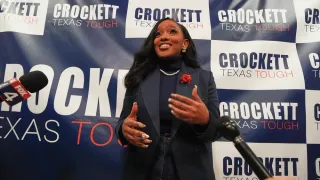March 22, 2021
'What is LGBT?' Asks NH Lawmaker After Labeling Them 'Deviant'
READ TIME: 2 MIN.
A New Hampshire lawmaker apologized for referring to LGBTQ people of having "deviant sexuality" and promised to not only continue to learn from the experience but to educate others, the
Associated Press reported earlier this month.
"I believe that it is important that I continue to do everything I can to heal the pain I have caused," Rep. Dick Marston, R-Manchester, said in a statement on March 5.
"I pray that the people I offended can find it in their hearts to forgive me and accept my apology. For the people who are not ready to forgive me, I understand," he said. "All I ask is that you not give up on me because I give my word that I continue my progress and guide others to being better people."
Marston's comment was made on March 1 when the NH House criminal justice committee was discussing a bill that would prohibit the "gay panic defense" – the use of a victim's sexuality and gender identity as a defense for manslaughter. "The legislation is part of a national push by LGBTQ rights groups to enact such laws, and it's unclear if such a defense has ever been used in New Hampshire," writes AP.
Marston opposed the bill, calling it unnecessary.
"We're all the same people. If you kill somebody you should be charged for murder, and you should be tried on it, and there's no way in heck that you're going to be able to say 'Well because he or she was some deviant sexuality that I'm not,'" Marston said before committee chair Daryl Abbas' gavel drowned him out, reports Pink News
"No member can speak of someone's 'deviant sexuality' like that," fellow Republican Abbas said.
"What is 'LGBT'?" Marston responded, prompting Abbas to adjourn the committee meeting.
"I come from a generation where my comments were accepted by society. However, just because I am in my 80s is no excuse to justify my comments. Rather, it is a reminder of the progress our society has made," he said Friday. "I am sorry I was late in joining the rest of you who already made that progress."






